Avoiding Roaming Bill Shocks: Best Practices and Real-World Solutions
Imagine heading off on a holiday or a quick work trip. You check a few emails, stream a map, maybe a playlist, and the next thing you know, you’re hit with a bill big enough to make your finance team sweat. As shocking as that sounds, it’s a reality many businesses have faced because of poor planning and a lack of awareness around international roaming.
Roaming bill shocks don’t just sting, they can cripple a business. But, they’re avoidable. Over the years, I’ve helped many businesses across the UK to help them manage telecom costs and avoid exactly these kinds of disasters.
In this article, I unpack the root causes of roaming bill shocks and share the preventative measures every business should consider. Because when it comes to mobile roaming, the smallest slip-up can have monumental consequences.
–
What This Blog Covers:
- “Roam Like at Home” Stops at the Border
- So, Who Picks Up the Tab?
- What If the Damage Is Already Done?
- Bill Shock Prevention
- Prevent the Shock, Protect Your Business
“Roam Like at Home” Stops at the Border
 Most roaming disasters start with a dangerous assumption: “It’ll be fine, I’ve got a bundle.” I can’t tell you how many customers I’ve spoken to who mistakenly believe that their domestic usage habits apply seamlessly when they travel abroad. At home in the UK, minutes, texts, and data are often unlimited. So it’s often difficult to remember that the landscape changes dramatically the moment you leave British soil – especially outside Europe.
Most roaming disasters start with a dangerous assumption: “It’ll be fine, I’ve got a bundle.” I can’t tell you how many customers I’ve spoken to who mistakenly believe that their domestic usage habits apply seamlessly when they travel abroad. At home in the UK, minutes, texts, and data are often unlimited. So it’s often difficult to remember that the landscape changes dramatically the moment you leave British soil – especially outside Europe.
While you can “Roam Like at Home” in Europe – in some cases – even that’s not guaranteed anymore post-Brexit. Now, some UK providers charge daily fees to use your domestic bundle in EU countries. Beyond Europe, many networks apply a bolt-on system where you either access a specific roaming allowance or get charged a daily rate. Either way, you’re bound to pay a pretty penny.
Beyond Europe is really when you start to get into dangerous territory. Glamorous destinations like Mauritius, the Maldives, and Morocco don’t just make for great alliteration; they often don’t fall under any roaming agreements. That means no capped rates, no daily bundles, just raw, tear-jerking data charges.
We see cases every quarter where a customer racks up tens of thousands in roaming charges.
In fact, we recently had a case where one of our customers – we’ll call him Ben – went to Morocco for a three-day business trip. The company was met with a £29,000 bill (yes, you read that right). How? Why? What on earth was he doing, you may ask? Nothing out of the ordinary: he streamed some content; used Google Maps to find his way around a foreign city; and opened large email attachments (he still had work to do after all).
Let’s break down this massive bill and unpack this roaming nightmare:
What’s Burning Through Your Data Abroad
The most common culprits that drive data charges sky high are using Apple Maps or Google Maps while driving abroad, streaming music or video, and opening large email attachments. To put this in perspective, in some countries, you’ll pay £6 per MB. So, one email with a 5MB attachment? That’s £30 gone. Multiply that across a working day or two, and you’ll quickly find yourself in some hot, four-figure water.
The Hidden Danger of Delayed Usage Visibility
At this point, your next line of questioning might be, ‘Well, surely he’d stop whatever doing after the first data consumption notification?’ But here’s what most people don’t realise: when you roam, especially in countries outside roaming agreements, your UK network can’t see your usage in real time. Usage visibility is delayed, and networks often take up to 72 hours to report roaming activity, so by the time the issue was flagged, poor Ben was already on his way back home, reminiscing about his marvellous getaway.
Check out this blog for a deeper dive into why roaming is so expensive (and how to avoid a £29,000 bill).
So, Who Picks Up the Tab?
This is where things get awkward. Technically, the business pays the bill — it’s the company’s account, after all. But when a £29,000 charge lands on the desk, trust me, no one’s exactly reaching for the cheque. That’s when disciplinary action gets mentioned, relationships get strained, and providers like Babble get dragged into difficult conversations.
Naturally, the initial reaction is to dispute the charge if a user says, “I barely touched my phone.” While that may be true, the hard data often tells another story. We’ve had customers claim minimal usage, only for our records to show they consumed 7GB in a day by simply streaming a couple of videos, checking in at home and downloading a document or two.
For companies, the domestic allowance that gets extended internationally is set by what they’ve agreed with their provider. This often means unlimited calls or texts and a pooled data bundle. But if staff don’t declare that they’re travelling, the company can’t ensure they’re set up on the right package. And in most cases, people simply don’t say a word. They jet off to faraway destinations, use their devices like they’re at home, and assume all is well — until the invoice hits.
Here’s my advice: Don’t wait for the damage. Prevent it.
Bill Shock Prevention

What If the Damage Is Already Done?
 Let’s say you’re already facing a monster bill – what now? Well, before you change your name and start a new life in the city you visited, take a breath and focus on fact-finding.
Let’s say you’re already facing a monster bill – what now? Well, before you change your name and start a new life in the city you visited, take a breath and focus on fact-finding.
Here’s what to do:
- Request daily usage reports from your provider — this helps you understand what was consumed and when.
- Have an honest conversation with the end user. Where were they? What did they do? Were they aware of roaming costs?
- Compare your records with their story. If there’s a 7GB spike on a single day, they weren’t “just checking their email.”
Remember, you won’t get usage details (like which apps were used) due to data protection and privacy laws, but usage volume and geography can paint a clear picture. Only by assembling the full story can you then decide how to respond — internally and with your provider.
Prevent the Shock, Protect Your Business
With the right knowledge, the right questions, and a few proactive steps, you can completely avoid roaming bill shocks. Whether you’re managing one device or a fleet of hundreds, you now know what to look out for to keep your bottom line intact.
The real risk is seen in simply making a single mistake – like opening an attachment or not switching to a secure Wi-Fi network – that could cost the company thousands. These charges creep up silently, and by the time they hit your account, the damage is done.
I’ve worked with businesses of all sizes to help them navigate mobility with confidence — not confusion. At Babble, we prioritise honesty and long-term trust. (Even if that means telling you when not to spend money with us, too.) If you ever need clarity, guidance, or just a reality check, I’m here to help.
So before your team travels — whether it’s the Maldives, Morocco, or Munich — have the conversation. Get the facts. And if you’re unsure, drop us a message. We’ll check the destination, assess the risk, and help you choose the best roaming setup — even if that means recommending a local SIM or eSIM. Because one call today could save you tens of thousands tomorrow.
Subscribe by email
You May Also Like
These Related Stories

Don’t Let Your Company Phones Turn into Expensive Bricks

Will Zero Trust Mean the End of BYOD?



